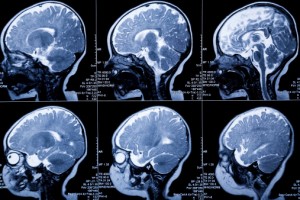 Hypoxic ischemic encephalopathy (HIE) is the medical term for a situation where the brain receives too little oxygen. HIE is a serious medical emergency. Brain cells may begin to die within just five minutes of not receiving enough oxygen.
Hypoxic ischemic encephalopathy (HIE) is the medical term for a situation where the brain receives too little oxygen. HIE is a serious medical emergency. Brain cells may begin to die within just five minutes of not receiving enough oxygen.
HIE can happen during the labor process, and an infant can suffer permanent brain damage or even death when deprived of oxygen.
If a doctor or other medical provider made a negligent mistake during labor and delivery that caused your child’s hypoxic ischemic encephalopathy, the medical professional may be held legally accountable and required to compensate you for your losses.
Speak With A Knowledgeable Professional
The New York and New Jersey birth injury lawyers at Ginarte Gonzalez Winograd L.L.P., represent people who have been injured by medical mistakes and errors. To find out what your legal options are, contact the firm now by calling 1-888-GINARTE (1-888-446-2783) or use our online form. Consultations are free. We collect fees only if you win your case.
About Hypoxic Ischemic Encephalopathy
Hypoxic ischemic encephalopathy is a life-threatening condition because the brain needs oxygen to function. If it doesn’t get enough, brain cells start to die.
The death of brain cells is permanent. A victim may suffer a variety of impairments depending on the extent of the loss and which cells were affected.
HIE can cause a child to develop cerebral palsy, blindness, deafness or complete brain death. HIE can also be fatal if the brain is deprived of oxygen for too long and bodily systems and functions shut down.
HIE is not uncommon during the pregnancy and delivery process. When a child is in utero, the baby doesn’t breathe through the lungs. Instead, the placenta ensures that the baby gets enough oxygen.
When the mother breathes, oxygen goes into her blood and flows through the placenta and into the umbilical cord. There are two veins in the umbilical cord, one that carries the oxygenated blood to the baby, and the other carries waste products including carbon dioxide away.
The interruption of this process prior to or during delivery can result in hypoxic ischemic encephalopathy. This condition can lead to a number of life-changing permanent medical impairments
Causes of Hypoxic Ischemic Encephalopathy During Childbirth
Causes of hypoxic ischemic encephalopathy during pregnancy and childbirth include:
- Placental abruption.
- Preeclampsia prior to birth.
- Intrauterine growth restriction.
- Maternal hemorrhaging.
- Infections in the mother, such as toxoplasmosis.
- A maternal fever.
- An epidural causing too much of a drop in the mother’s blood pressure.
- Excessive Pitocin use, causing hyper-stimulation (excessive contractions that prevent the placenta from delivering enough oxygen to the baby).
- A uterine tear.
- Compression of the umbilical cord.
- Prolonged labor.
Doctors need to be aware of the risk to the baby and must carefully monitor both mother and child when providing prenatal care and during labor and delivery. If a doctor makes a mistake, fails to recognize signs of fetal distress, or otherwise acts or fails to act in a way that endangers the child, then the doctor may be held legally accountable for the HIE that the child suffers.
Consequences of Hypoxic Ischemic Encephalopathy
The consequences of hypoxic ischemic encephalopathy vary from situation to situation, and sometimes the condition can be fatal. One of the most common outcomes, however, is called hypoxia-induced cerebral palsy.
Cerebral palsy is a medical term that refers to a group of disorders that affect cognitive function and muscle control. A child with cerebral palsy may have seizures, difficulty controlling the muscles, spastic movements, developmental delays, swallowing problems, speech problems and impaired motor and cognitive skills.
Cerebral palsy and other conditions caused by brain damage due to hypoxic ischemic encephalopathy are generally chronic conditions that do not get better. While the full extent of the harm done to the baby may not be known until the child is old enough to show developmental delays, the most serious and potentially fatal types of brain damage are often apparent shortly after the birth injury is sustained.
Who is Responsible for Hypoxic Ischemic Encephalopathy?
In many cases, children who suffer brain damage due to hypoxic ischemic encephalopathy are never able to live on their own or care for themselves. Providing treatment to help the child reach his or her full potential can be very expensive, as a child may need lifetime medical assistance and adaptive medical devices.
The medical professional who was responsible for causing the HIE should pay the costs of medical treatment, as well as other losses including lost income, pain and suffering, emotional distress or wrongful death.
Doctors who care for pregnant women and deliver babies are expected to be reasonably competent at what they do. While they don’t need to be perfect, they also cannot make unreasonably dangerous decisions or fail their patients in serious ways. A doctor who fails to act to provide reasonable care can be held responsible for the medical negligence through a medical malpractice claim.
Contact Our New Jersey and New York Birth Injury Lawyers Today
The birth injury attorneys at Ginarte Gonzalez Winograd L.L.P., can help families who have been affected by hypoxic ischemic encephalopathy that resulted from medical negligence. We have extensive experience evaluating and pursuing claims for children who have been injured by acts of medical malpractice and negligence. We work with pediatric and obstetric experts with a vast knowledge of neonatal and postnatal development in determining the cause of injuries and disabilities in infants and children.
Speak With A Knowledgeable Professional
If you are the parent of a child who suffered hypoxic ischemic encephalopathy during birth, please contact us for immediate attention at 1-888-GINARTE (1-888-446-2783) or use our online form for a free consultation.
